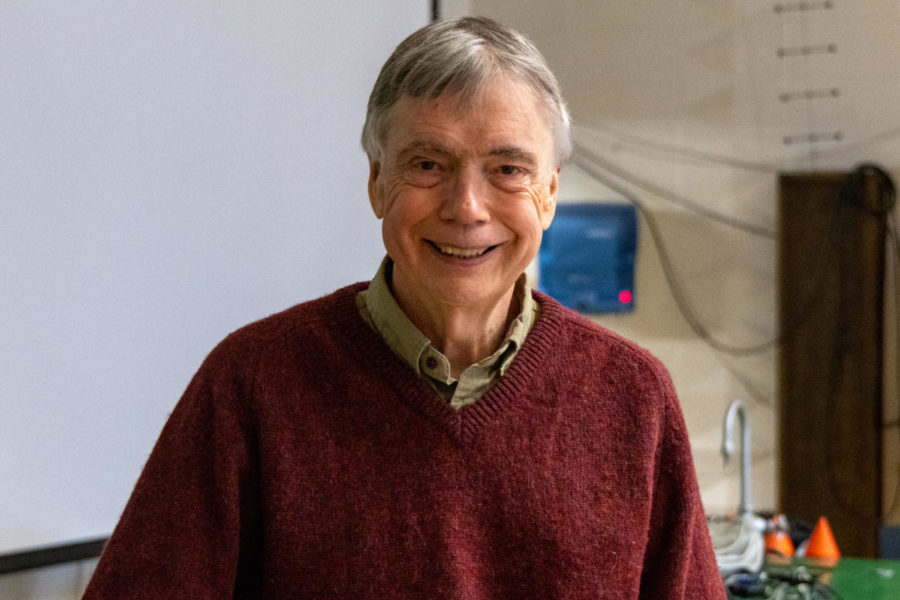UK professor receives American Association for the Advancement of Science Fellowship for astronomical advances
Gary Ferland, a professor in the Department of Physics and Astronomy at UK, poses for a photo on Monday, Feb. 6, 2023, at the Chemistry-Physics Building in Lexington, Kentucky. Photo by Travis Fannon | Staff
February 9, 2023
Gary Ferland, a professor in the Department of Physics and Astronomy at UK, has been named a Fellow in the 2022 class of The American Association for the Advancement of Science (AAAS), according to a press release published on Jan. 31, 2023.
AAAS recognized Ferland for the continued development of his code, “Cloudy,” which has helped the astronomy community better understand light that is received through telescopes.
The goal of Cloudy is to use information received from telescopes to figure out what is happening in space based on the light they send back to Earth, Ferland said. Cloudy helps researchers better understand the highly specific information they receive from telescopes.
“We read the message in the star light,” Ferland said. “The amount of detail that we can see is superb. What we need is a way to interpret what this means.”
Cloudy takes into account known laws of physics and how atoms and molecules emit light. Ferland said this allows the program to do a complete simulation showing what is happening in space based on the light that is received on Earth.
He also said he is honored the Department of Physics and Astronomy would put effort into nominating him for this fellowship.
“It’s a wonderful acknowledgement. It’s very kind … and much appreciated,” Ferland said.
Ferland is one of the 505 scientists and engineers who received this lifetime honor in the last year.
While Ferland was only recently honored as an AAAS Fellow, Cloudy has been around for decades.
Ferland first started his work with Cloudy in 1978 at Cambridge University in Cambridge, England, after the launch of The International Ultraviolet Explorer (IUE).
IUE was the first space observatory sent into orbit to collect ultraviolet data. Ferland saw the opportunity to write a big program that would be suitable for it, and thus, Cloudy was born.
Cloudy has only grown since then, constantly evolving with the advancement of telescopes.
Ferland has collaborated with 18 students pursuing their doctoral degrees to write their theses about exploring different parts of the universe. If Cloudy couldn’t do the kind of exploration needed for their research, the students would help Ferland develop Cloudy so it could.
“It was a lot of drunkard’s walk, stumbling our way through where the needs were. (Cloudy) was always very responsive to the needs of the telescopes that were being launched,” Ferland said.
Although Cloudy has stayed up-to-date with the advancements of science and technology, even Ferland doesn’t know what Cloudy’s future looks like.
“You know I wouldn’t try to predict the future. Astronomy is so wonderful that way. The universe isn’t as strange as we think, it’s stranger than we can think,” Ferland said.
































































































































































bella metzdorff • Feb 9, 2023 at 6:30 pm
very great report i am very intrigued to learn about this!! very well done to the reporter natalia garcia!!!!!
Mariana • Feb 9, 2023 at 6:05 pm
amazing